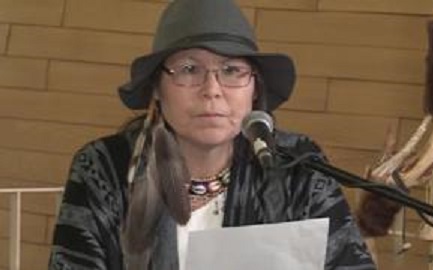
Canada has reached a reached a major settlement with indigenous victims of the so-called Sixties Scoop.
The federal government has announced a payout of C$800m ($635m; £488m) to some 20,000 victims.
Starting in the 1960s, child welfare agencies removed thousands of indigenous children from their homes and placed them with non-indigenous families.
Canada has been involved in years of litigation over the practice.
Crown-Indigenous Relations Minister Carolyn Bennett said on Friday the agreement reached in principle will see $750m spent on direct compensation and another $50m spent to fund an Indigenous Healing Foundation with a counselling, healing and education mandate.
A further $75m will go to legal fees related to the national settlement.
A tearful Ms Bennett called the agreement an essential step “to begin to right the wrong of this dark and painful chapter”.
The full details of the settlement must still negotiated and it has to be approved by the court.
In February, an Ontario court sided with indigenous plaintiffs in a “Sixties Scoop” class-action lawsuit against the Canadian government.
The plaintiffs had argued that they suffered emotional, psychological, and spiritual harm from the broken connection to their heritage.
A compensation hearing was set to take place on 11 October but lead claimant Marcia Brown Martel chose to adjourn the court date to pursue pan-Canadian agreement discussions with the government.
“It was important to me that we got recognition and justice, not just for some, but for as many people as possible,” she said.
Similar lawsuits have been filed in British Columbia, Manitoba, Alberta, and Saskatchewan.
The agreement is the first step in resolving the remaining Sixties Scoop litigation.
Over the course of about two decades, thousands of indigenous children were sent to mostly non-indigenous homes in Canada, the US, New Zealand, and Australia – often without the consent of their families.
In Ontario, an estimated 16,000 indigenous children were taken from their families and communities and put up for fostering or for adoption.
Many of the children had no contact with their families and communities after their removal.
By the 1980s, Canadian provinces began changing their adoption policies after indigenous leaders and others condemned the practice as a form of “cultural genocide”.
Source: bbc.co.uk




Be the first to comment